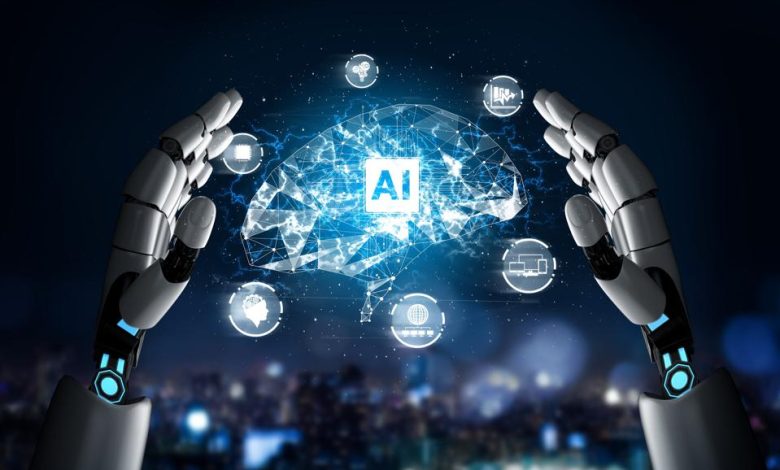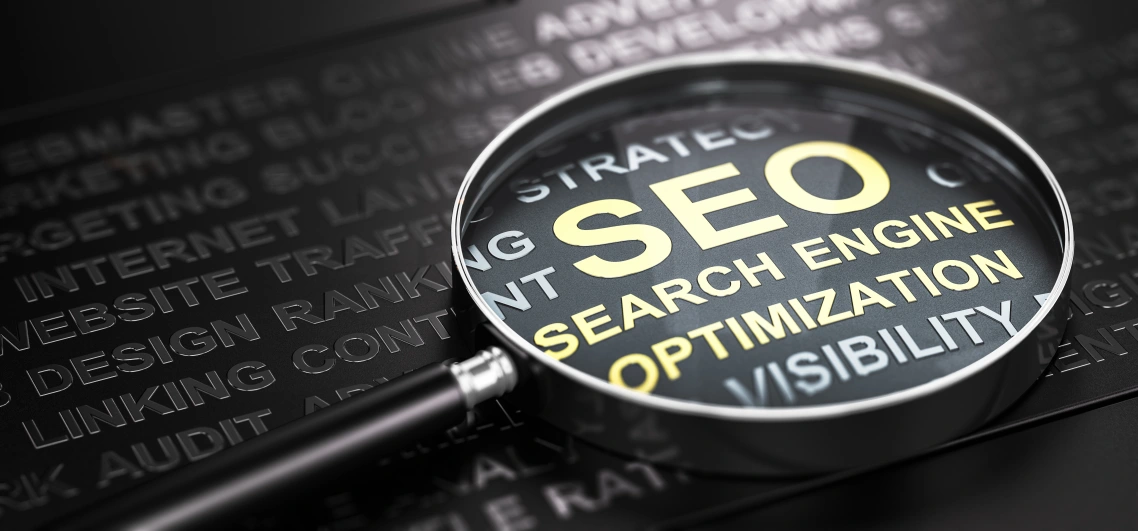5 Ways Artificial Intelligence Will Revolutionize Digital Marketing in 2022

What will artificial intelligence (AI) imply for marketers in 2022? Chatbots and other virtual assistants, as well as content development and user experience enhancement, are already altering the digital marketing landscape. While the future is difficult to foresee, it is certain that AI will continue to advance and play an increasingly important role in digital marketing.
Today’s digital marketers are drowning in a sea of data, and it can feel like you’re drowning and treading water at the same time. Then, gloriously, artificial intelligence walks into the sea of data to serve as your life jacket.
Artificial intelligence has received a lot of attention in recent years due to its significant role in reshaping enterprises and boosting sectors. It is transforming the way we do business, particularly in light of the recent economic crisis.
AI has progressed from Rosie the Robot to IBM’s Watson, and it currently serves as a tool for humanity. It’s also safe to state that the digital marketing sector is continually growing, with new technologies being introduced on a daily basis. As a result, some of these technologies have the potential to fundamentally alter our understanding of the online consumer journey.
We’ve witnessed a growth in Chatbot technology in recent years, and it’s no surprise that this trend is expected to continue as AI grows more advanced. According to recent Semrush data, 40 percent of marketing and sales teams respect AI technology and machine learning the most. Also you can read best digital marketing book in 2022.
The question is, how will artificial intelligence effect digital marketing in 2022?
Targeted marketing
Convincing your prospect is a critical component of targeted marketing.But how can you persuade someone you don’t know?
In the coming year, AI will be the future of digital marketing, whether in the form of virtual assistants, predictive consumer segmentation, or smart design for personalised customer experiences.
Traditional advertising is less valuable than marketing that targets people based on their broad inclinations. And, now that artificial intelligence is available, marketers may utilise customised data to estimate whether buyers will be interested in a product before asking them to pay anything.
Marketing automation and personalization
Do you wish you could automate your content creation while still having it properly personalised? You certainly can. Marketing automation and personalization using artificial intelligence are an excellent combination that results in a high level of customization in marketing. Businesses can gain a significant competitive edge in the post-pandemic era by growing sales and revenue.
What’s that faint sound of artificial intelligence you’re hearing as you read this? It’s coming from your mailbox – an automatic email from the service you subscribed to. It is both automated and personalised.
Marketers may automate pay-per-click (PPC) advertising, display advertising, conversion rates, search engine marketing (SEM), keyword research, SEO, social media marketing (SMM), and website analytics with AI technologies.
Predictive analytics-driven personalized recommendations
Rosetta is a Facebook team-created project.
This project focuses on
- using AI and machine learning to recognise text
- in images and videos in order to improve
- the quality of the information users see in their news feed,
- IOS suggestions,
- and other parts of Facebook.
This study looks into how artificial intelligence may be used to improve the user experience by recognising what individuals are interested in and increasing their engagement with Facebook.
Predictive analytics, often known as predictive modelling, delivers actionable information that might not be visible otherwise. It is a method of predicting individuals’ future behaviour based on previous data and testing runs.
We employ AI in digital marketing to provide users with individualised recommendations, resulting in more repeat usage and higher user retention.
AI-driven content marketing
Advertisers are increasingly discovering that leveraging tools to acquire greater insights into customer behaviour gives them a competitive advantage in the digital age.
The key to marketing and growth is to reach the right people at the right time with the right message.
This is sometimes accomplished by performing market research to
- understand what people are worried about
- from a cultural and societal standpoint,
- as well as by reviewing macro-level facts about your target market (age group, income, education level).
It is critical to segment the information and build it into something you can pitch to your audience if you want them to read your message. This is where artificial intelligence comes in.
Artificial intelligence is becoming increasingly important in content distribution. It assists by anticipating subjects that are likely to attract attention and delivering material with pinpoint accuracy around those topics.
Customer relationship management (CRM)
Companies such as Zendesk, Salesforce, and IBM spend a lot of money building AI that can engage with clients more humanly.
- Businesses can utilise artificial intelligence to: Gain real-time insights on how your customers interact with you across the many channels you use to communicate with them.
- Assign cases to the most appropriate support group automatically, then utilise predictive analytics to identify the best course of action.
- Chatbots can be used to provide expertise through automated workflows, which can be a very cost-effective way to expand your customer base.
- Analyze customer data to discover the leads most likely to become customers and assist organisations in nurturing these relationships.
- Machine learning,
- big data,
- emotional intelligence,
- and the three V’s are the most intriguing trends in my opinion
- Verification,
- Validation,
- and Veracity
Some of these trends may fade with time, but they are hot subjects right now.
By 2022,
- digital marketing savvy marketers will take advantage of AI’s ability to read emotion,
- such as how pleased their customers are with their offering.
- Marketers may track
- customer sentiment toward their product or service using tools such as
- chatbots and take action swiftly (whether that means changing their product or offering a return).
The takeaway
Technology advancements have enabled more firms to implement AI. And as more enterprises do so, the regular B2B entrepreneur will reap enormous benefits. By 2022, artificial intelligence (AI) will play a critical role in digital marketing and business in general. But it’s just as crucial to consider how these companies may employ AI to provide meaningful services rather than merely replace their human equivalents.




